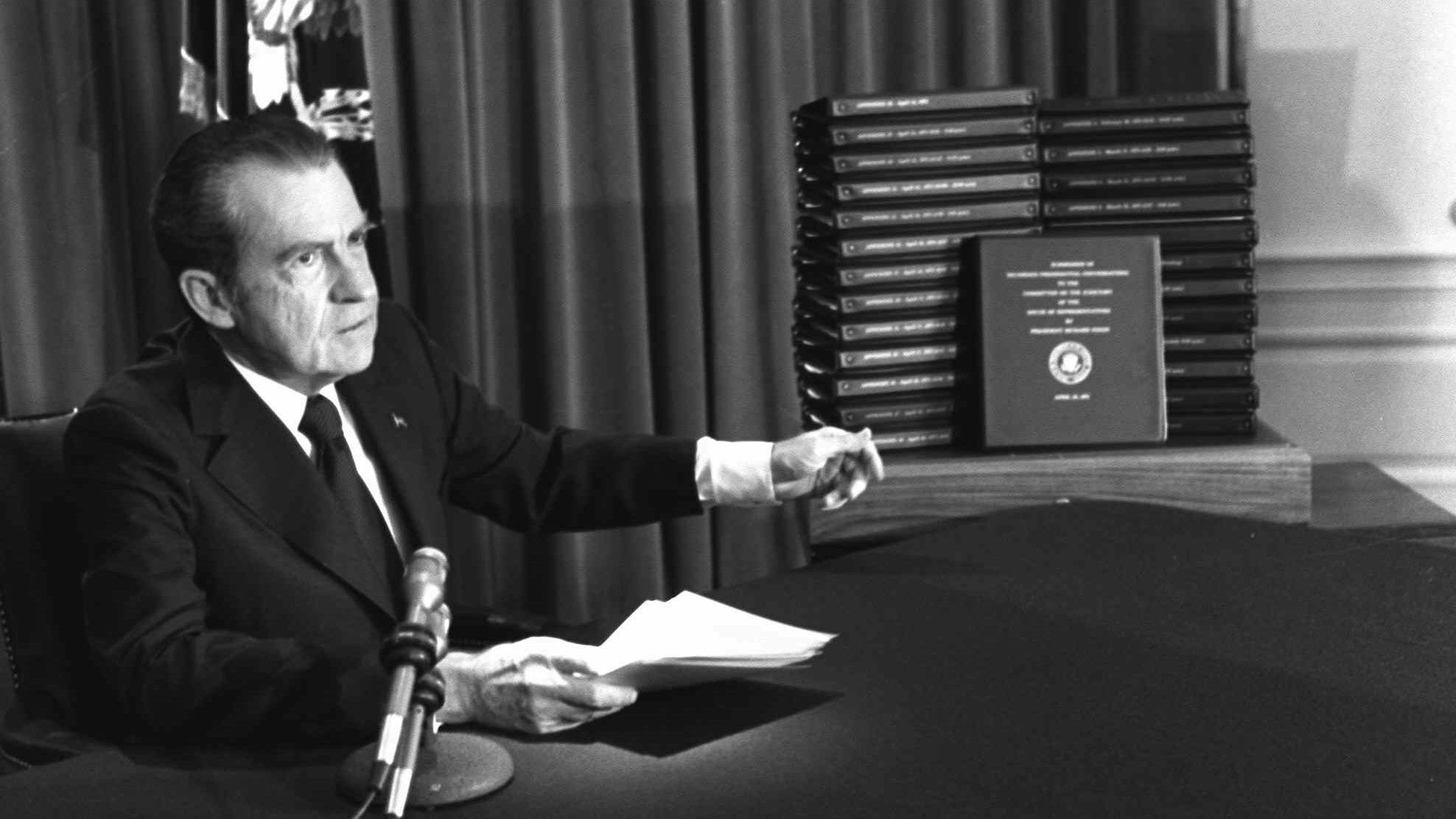Editor’s note: CNN’s six-part series “United States of Scandal With Jake Tapper” will premiere at 9 p.m. ET/PT February 18. Julian Zelizer, a CNN political analyst, is a professor of history and public affairs at Princeton University. He is the author and editor of 25 books, including The New York Times bestseller ““Myth America: Historians Take on the Biggest Legends and Lies About Our Past” (Basic Books). The views expressed in this commentary are his own. View more opinion on CNN.
Why doesn’t scandal seem to matter anymore?
According to one definition in Merriam-Webster, a scandal is a “circumstance or action that offends propriety or established moral conceptions or disgraces those associated with it.”
Yet scandal in American politics doesn’t necessarily lead to disgrace (or at least disqualification) anymore. Former President Donald Trump has tested this question more than any other elected official in modern times. As president, Trump experienced more moments that would traditionally be defined as a scandal than almost any other high official in recent memory, arguably surpassing his notorious predecessor, Richard Nixon. What was so notable about Trump is that almost all his scandals occurred in broad daylight, including efforts to overturn the 2020 election and the resulting violence on Capitol Hill on January 6, 2021.
Trump’s first start date in a criminal trial is set for March 25, after a New York judge on Thursday refused to dismiss a case concerning hush money. It centers on charges that, before the 2016 election, Trump falsified business records to conceal payments to Stephanie Gifford (an adult film actor with the stage name Stormy Daniels), who alleged she had an affair with Trump. Trump denies the affair and has pleaded not guilty.
While the case itself involves the least of the indictments in the four criminal cases currently pending against him, the alleged sexual relationship with a porn star and his efforts to cover it up would traditionally constitute the kind of thing marquee scandals are made of. The trial, converging with the Republican primaries, should be one more test as to whether any part of his ongoing scandals can shake the support of the GOP for his nomination. But based on the past few months, the prediction would have to be probably not. (Trump has denied wrongdoing in the cases as well.)
Trump seems to be covered in more Teflon than the late President Ronald Reagan. Even when scandalous stories stick, there seems to be little political effect. A politician who has done almost everything that would once be career-ending remains the clear frontrunner for the GOP presidential nomination in 2024. Although it seems unlikely the Supreme Court will grant him immunity from prosecution, outside the world of law Trump doesn’t really need that protection.
It is fair to say that Trump is not an anomaly. Numerous politicians have had careers ended in recent times as a result of scandal, but there seems to be much more room to survive now. Some of Trump’s closest allies, such as Rep. Matt Gaetz of Florida and Marjorie Taylor Greene of Georgia, have lived through personal and political turmoil, only seeming to gain more power and money despite the storms.
What is happening? Why aren’t scandals what they used to be? Why do politicians seem more immune from these moments than in earlier times?

Some of this has to do with Watergate itself. The impact of the epic scandal that brought down Nixon’s presidency, combined with the aftermath of the Vietnam War, generated high levels of distrust in government. Polls have shown that there has been a steady erosion of trust in government officials since the early 1970s, reversing a high point in 1964.
While this distrust had positive effects on politics, encouraging investigative journalism and producing government reforms that increased accountability, this sentiment has created a public culture where many Americans don’t expect much of their leaders. As a result, when scandals break about personal behavior or political ethics, there has been a tendency for significant parts of the electorate to shrug off the stories as more of the same. Why change horses in midstream if the next horse will be exactly the same? Too often, the nation has become, to quote the band Pink Floyd, comfortably numb.
Political polarization has also been at work as with so much else in American politics. As the fault lines between Democrats and Republicans have hardened, voters are more concerned about whether their party remains in power than about punishing individual politicians for misdeeds.
When polarization combines with unstable majorities on Capitol Hill, there has been greater willingness to tolerate politicians who have acted in untoward ways. The potential cost of ousting any official is usually weighed against the potential for the balance of power to shift toward the other party.
In an era when most Americans are more concerned about the political party of their children’s future spouse than their religion, this calculation is dominant.
At the same time, the asymmetric nature of polarization has created one party — the GOP — so extreme that most guardrails no longer matter. The inoculation from scandal’s effects has been much more pronounced in the Republican Party than among the Democratic Party, a party that still abides by more traditional norms and processes of governing, in large part because it still places government at the center of its agenda.
Although there were enough New York Republicans pressuring Rep. George Santos to resign before the House of Representatives voted to expel him following endless evidence of his lies, many Republicans have not met that fate. Equally notable was that it took someone as extreme as Santos to persuade the GOP-led House to expel the congressman and reach the conclusion that keeping him was too costly politically. Some in the party now demonstrate extraordinarily high tolerance of poor behavior, tending to rally around the person being investigated rather than circling the wagons to banish them as in yesteryear.
Whether one is a Republican or a Democrat, the current media ecosystem doesn’t lend itself to the kind of scandals that defined Watergate. In modern times, many Americans interested in politics tend to receive their news through a fragmented, partisan lens where information reifies existing political beliefs and discredits oppositional views.
Damaging information about a legislator or president can be discounted by supporters as “fake news,” and their stories will be told through partisan news outlets that support the defense. Moreover, even more Americans will simply tune out the story altogether. There is no public commons as existed in the era of network television and print journalism. Our system of streaming, podcasting and smartphone viewing makes it much easier to tune out and harder for politicians demanding accountability to reach a broad audience.
The kind of common cultural vocabulary that presidential politics once provided only still exists on Super Bowl Sunday or Taylor Swift tours. Our attention span is also so short that people who can withstand the humiliation of these moments, or simply avoid feeling shame, can often outlast the interest in doing something about what they did.
Politicians have learned the effectiveness of endurance over the years. President Bill Clinton demonstrated this dynamic in 1998 when he survived impeachment on charges of perjury and obstruction of justice after an extramarital affair with an intern and emerged with high approval ratings. Sen. Robert Menendez of New Jersey has refused calls from fellow Democrats to resign as he faces corruption charges once again. (He has denied wrongdoing and pleaded not guilty.) One study even found that legislators often raise more money after a scandal, especially if the issue received media coverage.
For all these reasons, scandal in 2024 isn’t your grandfather’s scandal. Many politicians can feel relatively secure that they will survive should they find themselves in the middle of a storm. While there are some positive elements of this new era, such as the fact that every indiscretion and mistake does not end the career of good officials, the dangers are immense.
Watergate taught Americans not to trust that their elected officials would use their power well. But that healthy outrage birthed a nihilistic mentality about politics rather than one that generated improvement. Holding politicians accountable for misdeeds is crucial. Once that goes out the window, we are impoverished as a democracy and face the likelihood that more wrongdoing will be right around the corner.








